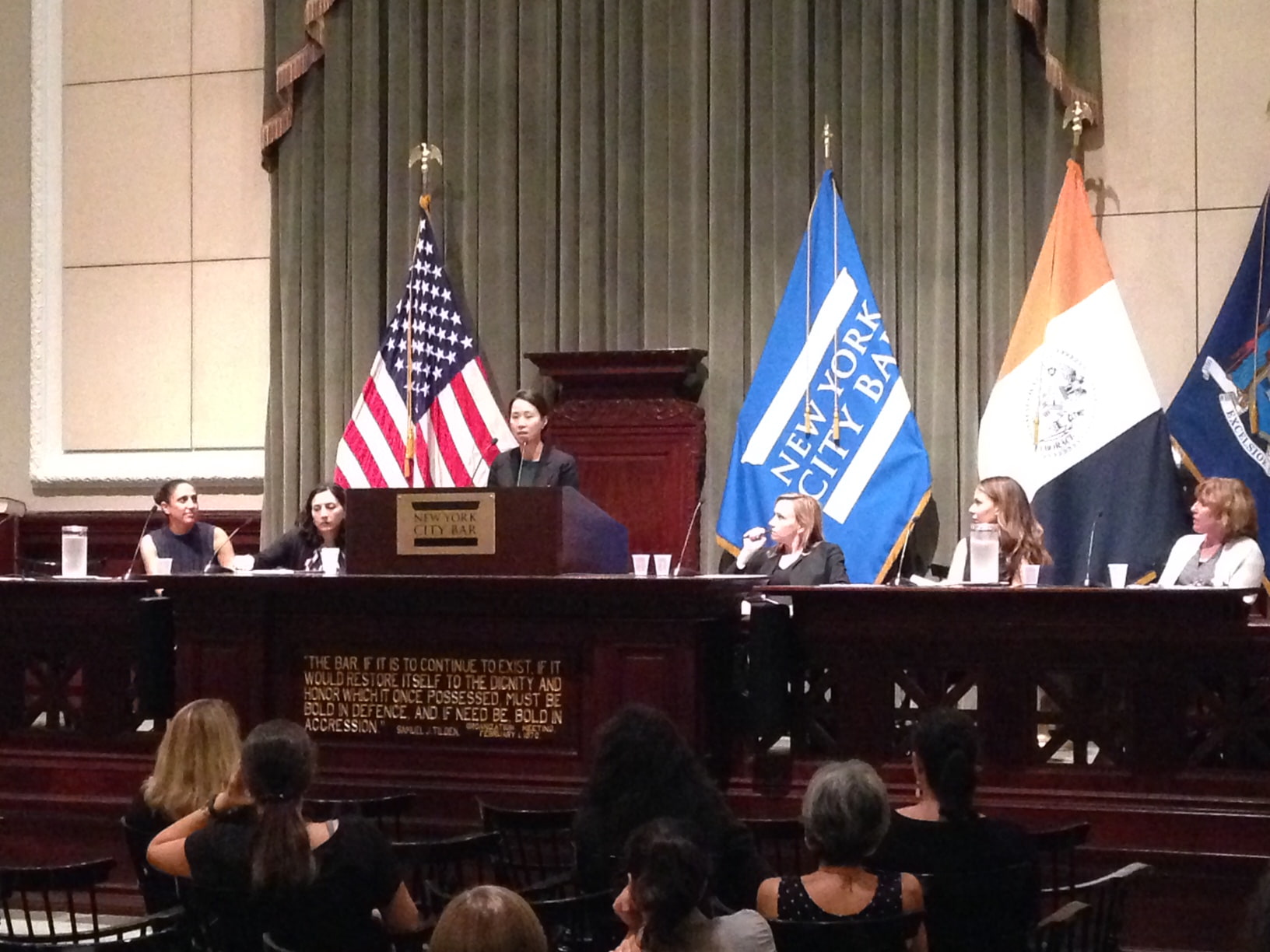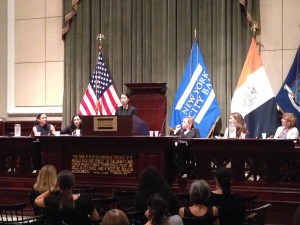Justice Center News
The Justice Center News blog features our advocacy on issues affecting low-income New Yorkers today and the latest CBJC happenings. For press releases, click here. For publications, click here.

Working with Law Enforcement from a Victim-Centered Perspective – by Lorena Ramirez
by CBJC Staff September 22, 2016
On September 21st, the City Bar Justice Center’s Immigrant Women and Children Project hosted a panel discussion on the experiences of professionals working with victims and law enforcement on human trafficking cases at the New York City Bar Association.
The panel, “Human Trafficking Cases: Working with Law Enforcement from a Victim-Centered Perspective,” was moderated by Suzanne Tomatore, Director of the Immigrant Women & Children Project at the City Bar Justice Center. The speakers included: Leigh Latimer, Supervising Attorney at the Legal Aid Society; Melissa Martinez, Clinical Social Worker at the Human Trafficking Response Unit, New York County District Attorney’s Office; Amanda Kramer, Assistant United States Attorney, Southern District of New York; Lynly S. Egyes, Legal Director at the Sex Workers Project, Urban Justice Center; and Song Kim, Staff Attorney at the Asian American Legal Defense and Education Fund.
The experts who spoke discussed the accomplishments and challenges of their experiences working with human trafficking survivors and law enforcement. The consensus was that the new approaches in the criminal courts including the NYS Trafficking Courts are an improvement for survivors and that the survivor’s needs and concerns come first before assisting in the prosecution of their trafficker. Social work support can be very helpful to survivors accessing needed services so that they can be empowered to testify against their traffickers. Tips such as inquiring as to whether restitution to the survivor will be requested in federal prosecutions were shared. The panelists also acknowledged that the field has come a long way in the last decade and now it is more common to see survivors treated with more respect as victims.
Panelist and attorney Song Kim emphasized that it is important to see civil litigation as a means of accessing justice for human trafficking survivors. “Civil litigation can be stressful for survivors, but can also allow the survivor to request a formal apology from their traffickers. A financial settlement or judgment is the goal but it may not always be collected. However, an apology can also help a survivors move forward.”
The audience included people from law firms, non-profit organizations, law students and non-legal professionals.
For additional information about the Immigrant Women & Children Project, click here.
Recent posts
-
April 19, 2024
Statement of the Executive Director of the City Bar Justice Center Opposing IOLA Diversion and the Undermining of Complementary Public Service Programs
The City Bar Justice Center strongly opposes the inclusion in the FY2024-25 New York State budget of an eleventh-h...
Read more -
April 18, 2024
Corporate Transparency Act: What Small Businesses Need to Know
This article will break down the Corporate Transparency Act (CTA), which went into effect on January 1, 2024, that...
Read more -
April 9, 2024
The City Bar Justice Center’s 2024 Gala Celebrates Pro Bono Around the World, Raising Nearly $1.2 Million to Support New Yorkers in Need
On Wednesday, April 3, 2024, the City Bar Justice Center held its 19th Annual Gala, Pro Bono for Our World, at the...
Read more















